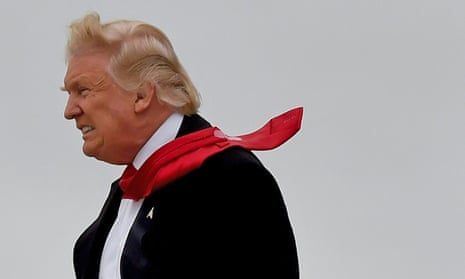In three phone calls with key Asian leaders this week, Donald Trump has once again upended expectations. We may now indeed have a radical break in the US approach to the region.
The first of these, with Nawaz Sharif from Pakistan, came with a detailed text of the conversation released by the Pakistani prime minister’s office. He is reported to have lavished praise on Sharif and the country more generally in what appears to be Trump’s typically solicitous approach to relationship building.
While not making any specific commitments or promises the detail of the call revealed by the Pakistan government makes life difficult for the US given how much time and effort it has put into improving its relations with India and may prompt unrealistic expectations in Islamabad.
Then in a call with the Philippines’ president, Rodrigo Duterte, the president-elect is reported to have endorsed Duterte’s anti-drug campaign that has unleashed lawless vigilantism in which more than 5,000 people have died.
This was the source of the breakdown in US-Philippines relations, with Duterte famously calling Obama a “son of a whore” for criticising his approach. While Trump’s endorsementmay mend fences with the Philippines, it flies in the face of America’s decades-long commitment to human rights and the rule of law.
Then to cap it off Trump took a highly publicised phone call from the relatively new Taiwanese president, Tsai Ing-wen. Since the US recognised the People’s Republic of China and ended diplomatic ties to Taiwan in 1979, no US president or president-elect has met or spoken to a Taiwanese president.
In so doing Trump has inflamed cross-Strait relations – Beijing is blaming Taiwan for instigating the call – and cast doubts over the direction of US-China policy. Indeed some believe that this could presage the end of the “one-China policy” and herald a new cold war.
There is much uncertainty about just what these conversations entailed, who prompted them – Trump tweeted that the call came from Taiwan but it could only have occurred with his team’s cooperation – and what policy import they will actually have.
There is a risk in overstating their importance, it is early days and these were short calls. But there does appear to be a thread to these conversations, particularly with Taiwan, that under Trump the US will adopt a hard-nosed realpolitik posture in Asia and that he is content to break with Washington orthodoxy even as it comes with real risks.
But the calls also display an inexperienced foreign policy team that is handling itself clumsily and causing problems that will give the new administration headaches. In the case of China, depending on how Beijing chooses to respond, that headache could be severe. Equally, the calls are ceding a lot, in narrative terms, to the foreign leaders using calls to frame relations with the US in advantageous ways. That the US is allowing itself to be used in this way in striking.
Transition between administrations is always a difficult time in US foreign policy. Based on the signals being sent this week, the Trump administration has ambition but also has much to learn about the complexities of managing the foreign dealings of the world’s most powerful country. It will be an interesting four years.
Nick Bisley is executive director of La Trobe Asia and professor of international relations at La Trobe University, Australia.
